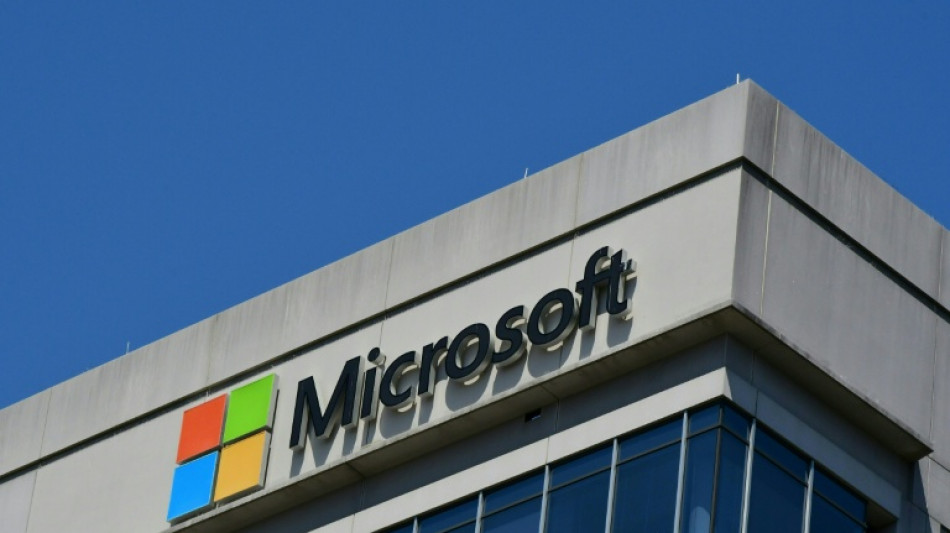
-
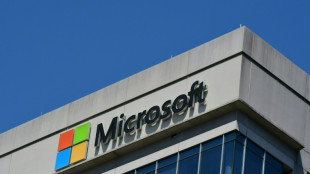 Sunset for Windows 10 updates leaves users in a bind
Sunset for Windows 10 updates leaves users in a bind
-
Hopes of Western refuge sink for Afghans in Pakistan
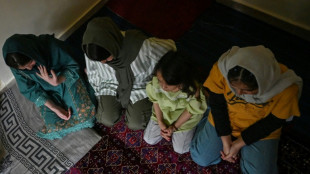
-
 'Real' Greek farmers fume over EU subsidies scandal
'Real' Greek farmers fume over EU subsidies scandal
-
Trump to see Zelensky and lay out dark vision of UN

-
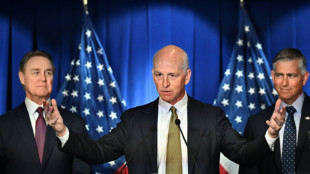 US lawmaker warns of military 'misunderstanding' risk with China
US lawmaker warns of military 'misunderstanding' risk with China
-
Emery seeks Europa League lift with Villa as Forest end long absence
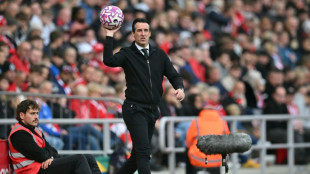
-
 Egypt frees activist Alaa Abdel Fattah after Sisi pardon
Egypt frees activist Alaa Abdel Fattah after Sisi pardon
-
Gibbs, Montgomery doubles as Lions rampage over Ravens

-
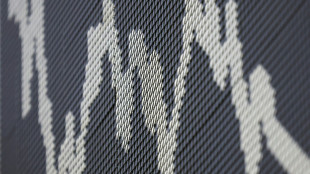 Asian markets struggle as focus turns to US inflation
Asian markets struggle as focus turns to US inflation
-
Schools shut, flights cancelled as Typhoon Ragasa nears Hong Kong
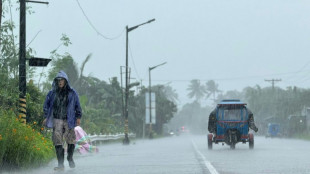
-
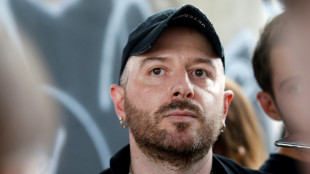 Maverick Georgian designer Demna debuts for Gucci in Milan
Maverick Georgian designer Demna debuts for Gucci in Milan
-
What do some researchers call disinformation? Anything but disinformation
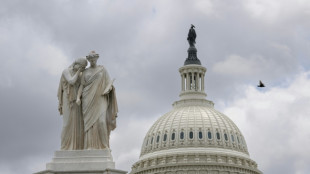
-
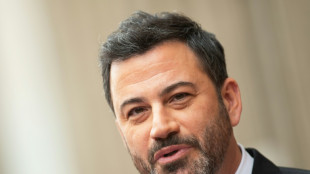 Jimmy Kimmel show to return Tuesday
Jimmy Kimmel show to return Tuesday
-
Unification Church leader arrested in South Korea
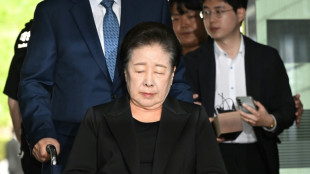
-
 Agronomics Limited Announces Onego Bio Update
Agronomics Limited Announces Onego Bio Update
-
Hemogenyx Pharmaceuticals PLC Signs Letter of Intent

-
 Rocket Raises $15M to Redefine Production-Ready Application Development
Rocket Raises $15M to Redefine Production-Ready Application Development
-
Singapore firm rejects $1bn Sri Lankan pollution damages

-
 Chile presidential contender vows to deport 'all' undocumented migrants
Chile presidential contender vows to deport 'all' undocumented migrants
-
China may strengthen climate role amid US fossil fuel push
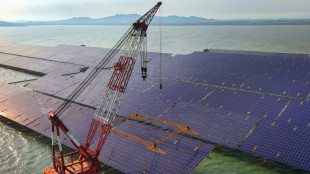
-
 Ryder Cup captains play upon emotions as practice begins
Ryder Cup captains play upon emotions as practice begins
-
Bradley defends US Ryder Cup player payments as charity boost
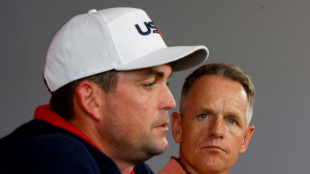
-
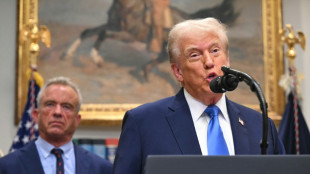 Trump ties autism risk to Tylenol as scientists urge caution
Trump ties autism risk to Tylenol as scientists urge caution
-
Dembele beats Yamal to Ballon d'Or as Bonmati retains women's award

-
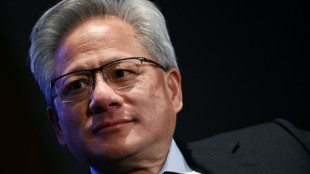 Strength in Nvidia, Apple helps lift US equities to new records
Strength in Nvidia, Apple helps lift US equities to new records
-
Man City 'keeper Donnarumma says would have stayed at PSG

-
 49ers ace Bosa to miss season after knee injury: reports
49ers ace Bosa to miss season after knee injury: reports
-
Canada wildlife decline 'most severe' in decades: WWF

-
 PSG star Dembele wins men's Ballon d'Or
PSG star Dembele wins men's Ballon d'Or
-
Napoli beat battling Pisa to maintain perfect Serie A start

-
 Spain's Aitana Bonmati wins Women's Ballon d'Or
Spain's Aitana Bonmati wins Women's Ballon d'Or
-
Jimmy Kimmel show to return Tuesday: Disney
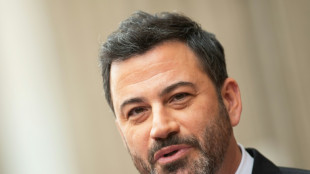
-
 Marseille inflict first defeat of season on PSG in Ligue 1
Marseille inflict first defeat of season on PSG in Ligue 1
-
White House promises US-controlled TikTok algorithm
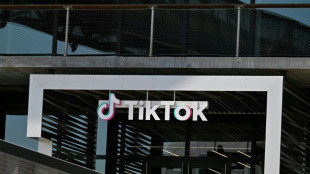
-
 Trump expected to tie autism risk to Tylenol as scientists urge caution
Trump expected to tie autism risk to Tylenol as scientists urge caution
-
Macron recognizes Palestinian state at landmark UN summit

-
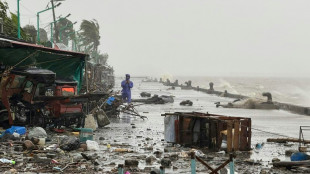 Hong Kong prepares for 'serious threat' from Super Typhoon Ragasa
Hong Kong prepares for 'serious threat' from Super Typhoon Ragasa
-
S. Korea court issues arrest warrant for Unification Church leader: Yonhap
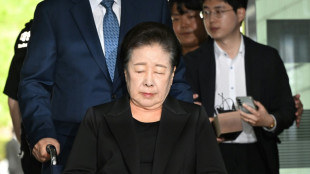
-
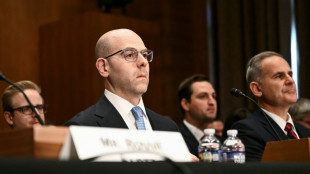 New US Fed governor says rates should be around 'mid-2%'
New US Fed governor says rates should be around 'mid-2%'
-
14 killed as rival Ecuadoran inmates fight with guns, explosives

-
 Dozens of French towns flout government warning to fly Palestinian flag
Dozens of French towns flout government warning to fly Palestinian flag
-
Nvidia to invest up to $100 bn in OpenAI data centers
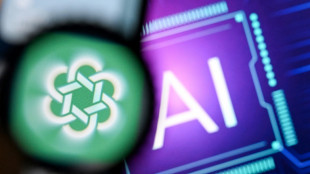
-
 US mulls economic lifeline for ally Argentina
US mulls economic lifeline for ally Argentina
-
France to recognize Palestinian state at contentious UN

-
 Museum or sheikh? World's second largest diamond awaits home
Museum or sheikh? World's second largest diamond awaits home
-
UK charities axe Prince Andrew's ex-wife over Epstein email

-
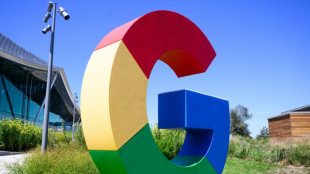 Google fights breakup of ad tech business in US court
Google fights breakup of ad tech business in US court
-
US pleads for new beefed-up multi-national force in Haiti

-
 'Don't repeat our mistakes' - Russian writer Akunin warns against creeping repression
'Don't repeat our mistakes' - Russian writer Akunin warns against creeping repression
-
Stocks steady ahead of key US inflation data
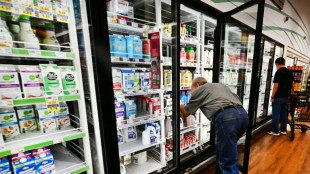

Sunset for Windows 10 updates leaves users in a bind
Microsoft's plan to halt updates for its Windows 10 operating system in mid-October has raised hackles among campaign groups and left some users worried they must buy new computers to be safe from cyberattacks.
Here is what you need to know about the planned end of support for the software.
- What happens on October 14? -
Computers running Microsoft's 2015-vintage Windows 10 will receive no further updates from the American tech giant from October 14.
Such downloads were used to "regularly patch (update) the operating system because it had become the target of many cyberattacks", said Martin Kraemer, a computer security expert with American firm KnowBe4.
- What does this mean for users? -
Microsoft has urged its customers to upgrade to the latest version of its operating system: Windows 11, released in 2021.
But the company is also offering a $30 one-year extension of Windows 10 security updates for users whose computer hardware is not compatible with the new operating system.
Consumer groups have blasted the move.
"The lack of backwards compatibility for certain Windows 10 machines sold only a couple of years ago is a blow to consumers' pocketbooks" as they face being forced to upgrade, US campaign organisation Consumer Reports said in a blog post last week.
In Europe, French groups such as End Planned Obsolescence (HOP) have started a petition demanding free updates extending to 2030.
And Germany's Verbraucherzentrale federation of consumer groups said in May that the move "worries consumers and leaves them unable to make free purchase decisions".
"Such a large volume of new (computer) purchases are also bad for the environment," including by creating large amounts of hard-to-recycle electronic waste, they added.
- How many users are affected? -
Microsoft declined to answer AFP's request for data on how many Windows users are unable to upgrade.
But Consumer Reports tallied 650 million people worldwide still using Windows 10 in August.
Another American outfit, the Public Interest Research Group (PIRG) estimates that up to 400 million computers are incompatible with Windows 11.
- What are the dangers ? -
Users unable to make the switch and who do not pay for security updates face a heightened threat of cyberattacks.
"By receiving no updates, you're no longer protecting yourself against the most recent cybersecurity risks," Kraemer said.
Although the increase in exposure is "very difficult" to quantify for individual users, as a group they would become priority targets for attackers sniffing for security holes.
As time goes on, Windows 10 users may also find themselves unable to install the latest third-party software, said Paddy Harrington of American consulting firm Forrester.
"Application vendors rely on the operating system vendor to provide certain features and functions," Harrington pointed out.
"If these are not updated, the app vendor can't be assured that their application will continue to function properly."
- What alternatives do users have? -
Even the most recent antivirus software may not be enough to protect an operating system no longer receiving updates.
"There's a limit to how much protection they can offer... it's much better than doing nothing, but should be a temporary patch while you find a permanent solution," Harrington said.
Users determined to stick with their existing hardware could switch instead to a different operating system, such as the open-source alternative Linux -- already the choice for many devices like internet servers and the basis for Google's Android smartphone operating system.
"As long as your applications support that OS and your management and security tools will support it, it's a good choice," Harrington said.
P.M.Smith--AMWN